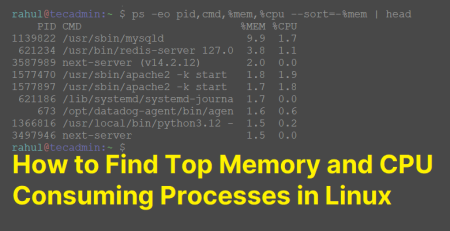Zsh is a powerful shell that provides a wide range of features and functionalities to enhance the user’s experience. One of the key features of Zsh is its support for special variables, which allow users to perform various tasks easily and efficiently.
In this article, we will explore some of the most useful special variables in Zsh and discuss how they can be used to improve your shell scripts.
$0 – Get the running script name
The $0 variable in Zsh refers to the name of the current script or shell being executed. This variable is particularly useful when you need to determine the name of the script that is currently running. You can use the $0 variable to display the name of the script, or you can use it in conditional statements to perform certain actions based on the name of the script.
For example, if you have a script named “myscript.zsh” and you want to check whether it is running, you can use the following code:
1 2 3 4 5 6 7 | #!/bin/bash if [[ $0 == "myscript.zsh" ]]; then echo "Running myscript.zsh" else echo "Not running myscript.zsh" fi |
$# – Get the number of arguments
The $# variable in Zsh refers to the number of arguments passed to the script or function. This variable is particularly useful when you need to check the number of arguments passed to a script or function and perform different actions based on the number of arguments.
For example, if you have a script that expects two arguments, you can use the following code to check whether the script was called with the correct number of arguments:
1 2 3 4 5 6 | #!/bin/bash if [[ $# -ne 2 ]]; then echo "Usage: myscript.zsh arg1 arg2" exit 1 fi |
$? – Exit status of last command
The $? variable in Zsh refers to the exit status of the last command executed. This variable is particularly useful when you need to check whether a command was successful or not and perform different actions based on the result.
For example, if you have a command that creates a file and you want to check whether the command was successful, you can use the following code:
1 2 3 4 5 6 7 8 9 | #!/bin/bash touch myfile.txt if [[ $? -eq 0 ]]; then echo "File created successfully" else echo "Error creating file" fi |
$! – Get the process ID of last command
The $! variable in Zsh refers to the process ID of the last command executed in the background. This variable is particularly useful when you need to monitor the progress of a background job or kill a background job.
For example, if you have a long-running command that you want to run in the background, you can use the following code to start the command and save its process ID:
1 2 3 4 | #!/bin/bash long_running_command & pid=$! |
You can then use the $! variable to monitor the progress of the background job or kill it if necessary:
1 2 3 4 5 | #!/bin/bash if [[ some_condition ]]; then kill $pid fi |
$@ – Get all the command line arguments
The $@ variable in Zsh refers to all the arguments passed to the script or function as separate words. This variable is particularly useful when you need to pass all the arguments to another command or function.
For example, if you have a script that needs to pass its arguments to another command, you can use the following code:
1 | some_command $@ |
Conclusion
In conclusion, special variables in Zsh are powerful tools that can help you perform various tasks easily and efficiently. The variables discussed in this article are just a few examples of the many special variables available in Zsh. By learning how to use these variables effectively, you can write more efficient and powerful shell scripts that can help you get more done in less time.

